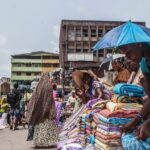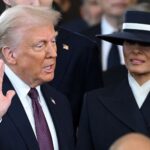President Bola Ahmed Tinubu, on Tuesday, March 18, 2025, wielded the biggest stick so far to address the prolonged political turmoil in Rivers by declaring a state of emergency in the oil-rich state.
In a nationwide broadcast delivered on Tuesday evening, Tinubu also announced the immediate suspension of Governor Siminalayi Fubara, his deputy Ngozi Odu, and all elected members of the Rivers State House of Assembly for an initial period of six months.
This measure, enacted under Section 305 of the 1999 Constitution, underscores the severity of the crisis that has paralyzed governance in the oil-rich state and threatened national stability, Tinubu explained.
In his broadcast, Tinubu outlined the scope of the state of emergency, appointing Vice Admiral Ibokette Ibas (Rtd) as Administrator to oversee the state’s affairs during the six-month suspension period.
The judicial arm of the state remains unaffected and will continue to operate under its constitutional mandate.
However, the Administrator will not have the power to enact new laws; any regulations deemed necessary will require approval from the Federal Executive Council and promulgation by the President.
“By this declaration, the Governor of Rivers State, Mr Siminalayi Fubara, his deputy, Mrs Ngozi Odu, and all elected members of the House of Assembly of Rivers State are hereby suspended for an initial period of six months,” Tinubu announced.
He described the measure as “extraordinary but necessary” to prevent further breakdown of law and order and to restore governance in the state.
The declaration, published in the Federal Gazette and forwarded to the National Assembly as required by the Constitution, grants the federal government sweeping powers to regulate the state and secure public order.
This move marks a rare invocation of Section 305, which allows the President to declare a state of emergency in situations of national danger or disaster when normal constitutional procedures must be suspended to regain control.
Tinubu revealed that he had personally intervened multiple times to mediate between the warring factions, including meetings with Fubara, Wike, and other stakeholders.
Despite these efforts, and those of other well-meaning Nigerians, the crisis persisted. “I have made personal interventions between the contending parties for a peaceful resolution, but my efforts have been largely ignored,” he said, expressing frustration at the intransigence of the key players.
The declaration comes after months of escalating tension in Rivers State, primarily fueled by a bitter feud between Fubara and his predecessor, Nyesom Wike, now the Minister of the Federal Capital Territory (FCT).
The rift, which began as a power struggle over the control of the state’s political machinery, has spiralled into a full-blown crisis marked by factional disputes, violence, and constitutional breaches.
The political instability reached a tipping point with the demolition of the Rivers State House of Assembly. Fourteen months later, the legislature remains unbuilt, leaving the state without a functioning legislative arm.
This, coupled with the purported defection of 27 lawmakers from the Peoples Democratic Party (PDP) to the All Progressives Congress (APC) and subsequent judicial rulings, further escalated the crisis in the state.
However, in a judgment on February 28, 2025, the Supreme Court ruled that Rivers State had effectively ceased to have a functioning government due to the collapse of its legislative arm.
The court upheld the rights of the 27 lawmakers led by Martin Amaewhule to resume their duties, a decision Fubara resisted.
Despite the apex court’s judgment, the crisis showed no signs of abating as both the executive and legislative wings of the state kept throwing bants and accusations.





